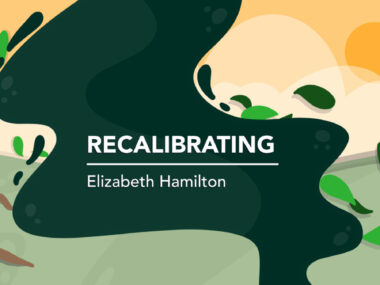FA reminds me I still have a lot to learn about navigating differences
Priorities and questions have shifted while raising a child with the disease
Written by |

From the moment I moved out of my childhood home, traveling became a passion of mine. It wasn’t just about seeing new places or tasting unique cuisine. (Well, maybe food had a little to do with it.) It was mostly about seeing different ways of living and meeting new people.
What does this have to do with Friedreich’s ataxia (FA)? A lot.
Because my early adventures were under the supervision of a formal program, there was training involved. It included building skills in being sensitive to the culture I was visiting. I learned to value thinking about customs, traditions, and beliefs before stepping foot on the soil of the place I was visiting.
It also involved being humbled, because I often felt incompetent with day-to-day activities that were different from what I was used to. Sometimes I would lean on the help of a cultural navigator who helped me to better adapt.
New concerns, new insight
Dealing with FA is not unlike this experience. Though our 12-year-old daughter, Amelia, is the only family member with FA, the culture of our family has shifted. Our family’s values and mindset are different now than they were before FA arrived on the scene.
What I used to value when attending an event has been overshadowed by other priorities since FA. Before I might’ve concentrated on whether food would be served, the type of entertainment, access to a bathroom, or the decorations. Now I think more about the bathroom’s accessibility than I do where it is. I don’t question if there will be food, but rather how it’ll be consumed and what support Amelia will need to eat.
Will the sound be overwhelming, and how inclusive will the event be? What conversations do I need to have before we go so that Amelia will feel that she’s valued and belongs?
If she can’t be included in things, how do I make sure she isn’t bored? How much support is needed to enter or leave a space? What will be the timing of everything, and what might it do to Amelia’s fatigue? And the most important question of all: What will the temperature be? Overheating is a serious risk for Amelia.
Our family has changed. How we used to live and think are echoes of memory. That can create the sometimes-challenging situation of reaching across cultures between a family navigating a disability and one without any physical barriers.
I need patience to remember that I didn’t always view life as I do now. I now need time to educate others about our family’s needs.
For those of you in a caregiving role, you know that time is a precious resource. It’s not just about being busy; it’s also about being tired. Here I can lean on some FA-focused cultural navigators who’ve been dealing with FA for a while and have wisdom to share.
When I start to get frustrated, I lean on my training. I spin the dial in my mind and recalibrate my view. That’s just like traveling. There’s so much to learn, and so much growth can happen, if we slow down, learn from the unique lives around us, and just be people, together.
Note: Friedreich’s Ataxia News is strictly a news and information website about the disease. It does not provide medical advice, diagnosis, or treatment. This content is not intended to be a substitute for professional medical advice, diagnosis, or treatment. Always seek the advice of your physician or another qualified health provider with any questions you may have regarding a medical condition. Never disregard professional medical advice or delay in seeking it because of something you have read on this website. The opinions expressed in this column are not those of Friedreich’s Ataxia News or its parent company, Bionews, and are intended to spark discussion about issues pertaining to Friedreich’s ataxia.




Leave a comment
Fill in the required fields to post. Your email address will not be published.